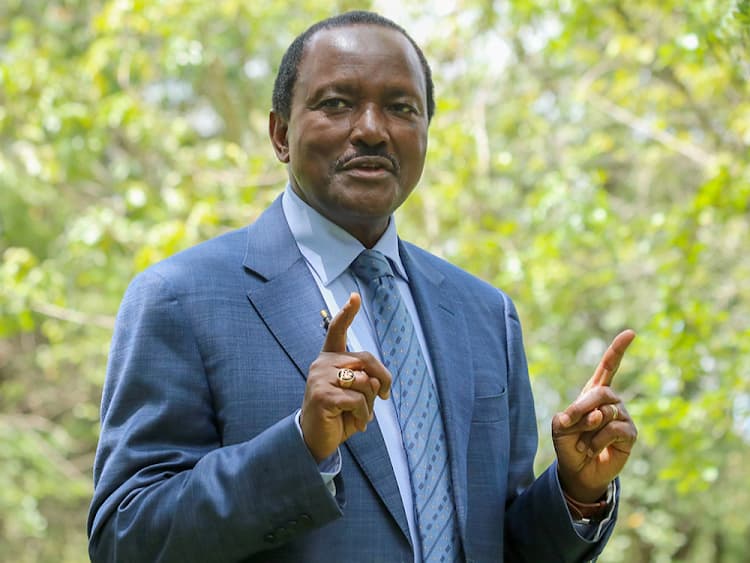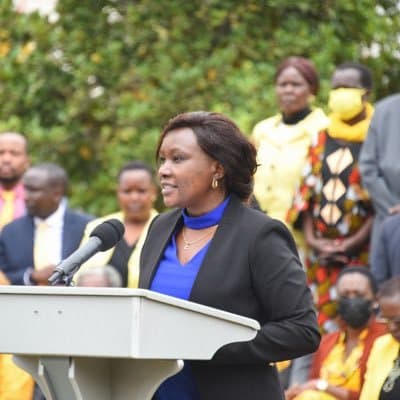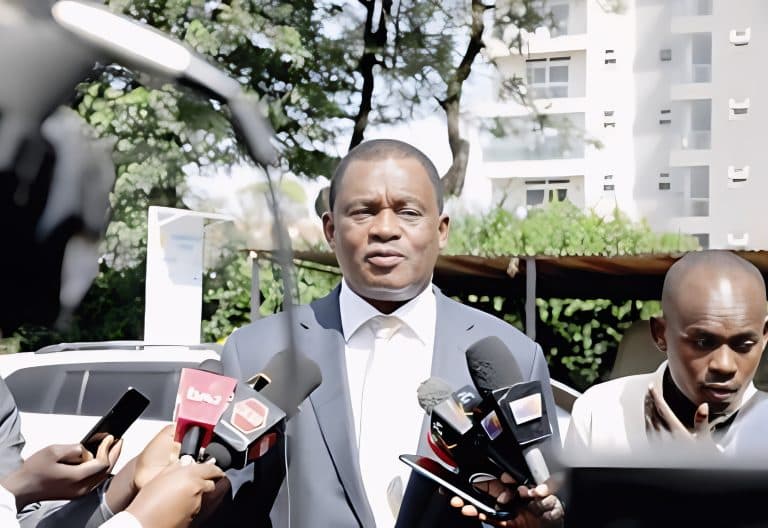We're loading the full news article for you. This includes the article content, images, author information, and related articles.
The claim, made without evidence, intensifies the high-stakes Mbeere North by-election, placing Kenya's electoral laws and political tensions in the Mt. Kenya region under a harsh national spotlight.

NAIROBI – Former Deputy President Rigathi Gachagua has claimed that the government is deploying Ksh600 million in public funds to unlawfully influence voters in the upcoming Mbeere North constituency by-election scheduled for Thursday, November 27, 2025. Speaking on Sunday, November 23, 2025, at A.C.K St. Stephen's Karangare Church in Ishiara, Mr. Gachagua alleged a coordinated effort of voter bribery and state interference to favour the United Democratic Alliance (UDA) candidate, Leonard Muriuki.
“Take all the money they bring here, some Sh600 million. That money is enough to connect every home in Mbeere North with power,” Gachagua stated, urging residents to accept the money but vote according to their conscience. He did not provide any evidence to substantiate his claim about the specific amount or the source of the funds. The allegation has significantly raised political temperatures in a contest viewed as a critical test of political influence between President William Ruto’s camp and the opposition forces Gachagua is aligned with.
The Mbeere North by-election was occasioned by the resignation of its former Member of Parliament, Geoffrey Ruku, who was appointed to the Cabinet by President Ruto in April 2025. The race has since evolved into a fierce proxy battle. Mr. Gachagua and other opposition leaders are backing the Democratic Party (DP) candidate, Newton Kariuki. On the other side, President Ruto's UDA, led in the region by Deputy President Kithure Kindiki and Embu Governor Cecily Mbarire, is campaigning vigorously for Mr. Muriuki.
The campaign has been marked by a flurry of accusations from both sides. Mr. Gachagua and his allies have repeatedly accused the government of using state machinery, intimidation, and financial inducements to sway the outcome. Former Attorney General Justin Muturi, a Gachagua ally, formally wrote to the Independent Electoral and Boundaries Commission (IEBC) on November 20, 2025, alleging a plot by state-backed operatives to cause disruption and bribe voters. Conversely, UDA Chairperson Cecily Mbarire has accused Mr. Gachagua's team of planning violence and filed a report at Ishiara Police Station.
These allegations bring Kenya's electoral laws, particularly the Election Offences Act, into sharp focus. The Act explicitly criminalizes voter bribery, which includes offering money or other inducements to influence a person's vote. A conviction can lead to a fine of up to Ksh2 million, a prison term of up to six years, or both, and potential disqualification from future elections. Despite these stringent laws, voter bribery has been a persistent issue in Kenyan elections, as highlighted in past reports by organizations like the Centre for Multiparty Democracy.
The role of the IEBC is now critical. The commission is under pressure to ensure a free, fair, and credible election amidst the heated rhetoric and serious allegations. Opposition figures, including Wiper Leader Kalonzo Musyoka, have called on the IEBC to investigate claims that voters are being asked to photograph their marked ballots in exchange for money, a direct violation of the secret ballot principle. In response to rising concerns, the IEBC has assured the public of its commitment to a transparent process and warned that electoral offences will be dealt with firmly. However, the commission has also noted challenges in enforcing campaign finance laws due to a lack of political goodwill to enact necessary legislation.
The Mbeere North contest is more than a local by-election; it is a microcosm of the shifting political alliances and the battle for supremacy in the vote-rich Mt. Kenya region. The direct confrontation between Deputy President Kindiki and his predecessor Mr. Gachagua underscores the deep political realignments occurring ahead of the 2027 General Election. The outcome is widely expected to be interpreted as a measure of the current administration's popularity versus the opposition's growing influence in a region that was central to President Ruto's 2022 victory.
As the November 27 polling day approaches, all eyes are on the IEBC and security agencies to manage the tense environment and ensure the will of the Mbeere North electorate is respected. The unsubstantiated, yet grave, allegations of a multi-million shilling bribery scheme serve as a stark reminder of the challenges facing Kenya's democratic process, demanding heightened vigilance from election monitors, civil society, and the voters themselves. FURTHER INVESTIGATION REQUIRED.
Keep the conversation in one place—threads here stay linked to the story and in the forums.
Sign in to start a discussion
Start a conversation about this story and keep it linked here.
Other hot threads
E-sports and Gaming Community in Kenya
Active 9 months ago
The Role of Technology in Modern Agriculture (AgriTech)
Active 9 months ago
Popular Recreational Activities Across Counties
Active 9 months ago
Investing in Youth Sports Development Programs
Active 9 months ago
Key figures and persons of interest featured in this article

Deputy President of Kenya (2022–2024)

10th Vice President of Kenya (2008–2013)

Governor of Embu County

Former Cabinet Secretary, Ministry of Public Service & Human Capital Development

Cabinet Secretary for Public Service and Human Capital Development